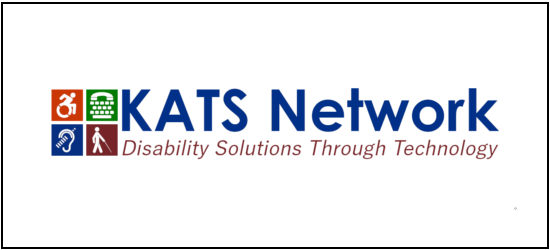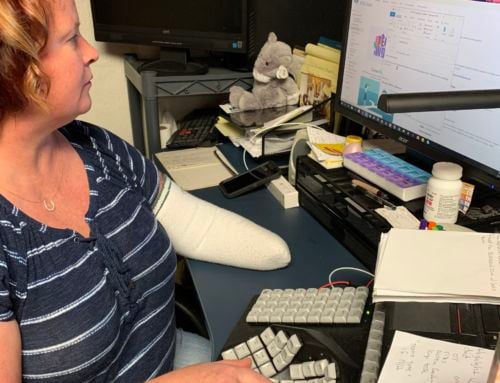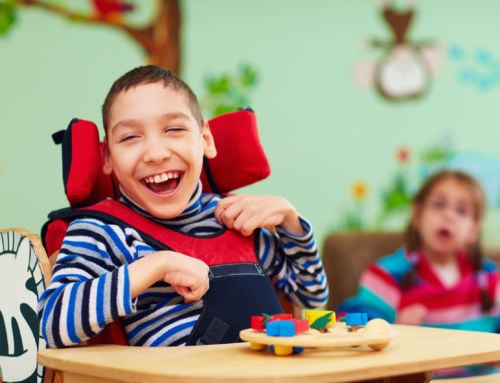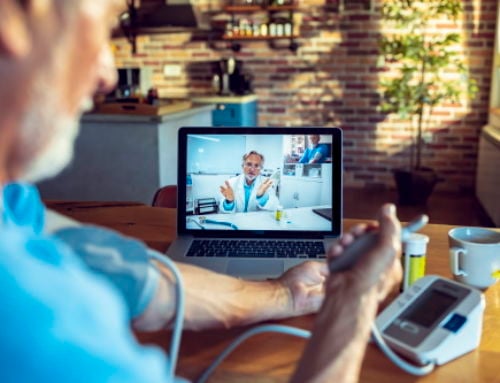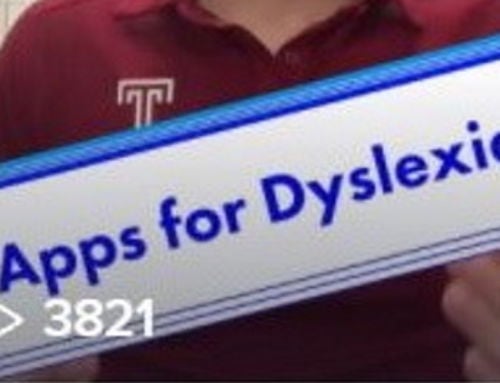AT Tips for #SevenTimes — Ending Sexual Abuse of Persons with Disabilities
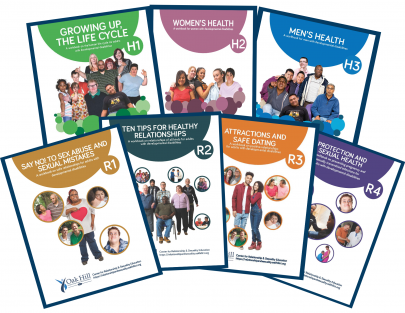
Individuals with intellectual or development disabilities (I/DD) are sexually assaulted at a rate that is at least seven times higher than for persons without disabilities. What can you do about it? A lot (including considering assistive technology).
It is not sexual assault awareness month and it doesn’t matter.

Last spring, as the pandemic was announcing itself, our blog abandoned plans to cover the #SevenTimes initiative of Oak Hill’s Center for Relationship and Sexuality Education in favor of COVID-related content. Ten months later, the pandemic rages on, but so does the sexual abuse of persons with intellectual and developmental disabilities. Now, AT3 Center News and Tips is launching a new series of shareable tips and tools for ending this abuse and raising awareness.
“Predators target people with intellectual disabilities because they know they are easily manipulated and will have difficulty testifying later. These crimes go mostly unrecognized, unprosecuted and unpunished. And the abuser is free to abuse again.”
A key finding from NPR’s Abused and Betrayed investigation series
During the #MeToo moment of 2018, National Public Radio aired its investigative series Abused and Betrayed and reported on unpublished data they examined from the US Department of Justice. NPR exposed a rate of sexual abuse for persons with I/DD that is at least seven times higher than it is for individuals without disabilities.
“Once you know that statistic, you can’t unknow it. And you have to do something. Once we all know this, we’ll do a better job of recognizing signs of abuse and a better job of keeping people safe. It’s staggering. People with I/DD are hurt by people they know and trust. The seven times statistic is only based on reported crimes.”
Katie Hanley, former Senior Director, Oak Hill Centers (in an interview with AT3 Center News and Tips last March)
A national spotlight on this issue was a long time in coming for Oak Hill, the largest non-profit disability services agency in Connecticut, and a provider of assistive technology services (through the NEAT Center, a partner of the CT Tech Act Project).
In response to the work of NPR’s investigative reporting, Oak Hill launched a #SevenTimes social media campaign to help maintain focus on this issue they’d begun tackling a dozen years earlier when Lucille Duguay, an Oak Hill social worker, identified the need for a curriculum to provide knowledge about bodies, healthy relationships and self-advocacy for women in Oak Hill group homes.
“Most people with I/DD grow up without knowing how their bodies work, where babies come from, or what sexual touch is.”
Oak Hill Center for Relationship and Sexuality Education
Duguay went on to found Oak Hill’s Center for Relationship and Sexuality Education. Now retired, her legacy is tremendous. Duguay’s curriculum, Positive Choices, has been found effective by researchers at George Mason University, University of Iowa, and Syracuse University and sold in 34 states. In addition, Oak Hill has recently revised her series of adult workbooks and made them available as a free download, an impressive resource (highlighted below).
In honor of her work and advocacy, AT3 Center News and Tips is mining Oak Hill and NEAT Center resources (among others) to create AT Tips for #SevenTimes. Each will highlight a tip, tool, or concept for improving communication and essential knowledge among persons with I/DD. After all …
Everyone Deserves A Voice and To Be Heard
- Individuals with I/DD must have access to the knowledge they need to identify abuse and a way to speak about it.
- Adults and children with complex communication needs are more vulnerable when they do not have a means for effective communication and/or the vocabulary to express what is wrong.
- Persons with disabilities are made more vulnerable when they don’t have an understanding of social cues, and/or knowledge about bodies and sexuality.
- Everyone is vulnerable to sexual abuse if they do not feel a right to control their own bodies, a right to choose touches, or if they lack the skills to self-advocate.
February’s AT Tip for #SevenTimes
For this introductory #SevenTimes post, we are highlighting three resources. Oak Hill emphasizes you do not need to be an expert in anything to get started ending this epidemic of sexual abuse. (Future AT Tips for #SevenTimes will zero-in on a quick useful takeaway and link back to this introductory blog.)
One: Oak Hill’s Free Workbooks

Oak Hill’s free seven-workbook series provides prevention education (not crisis management) and is designed for individuals ages 18 and older. Each can be read on its own, but Oak Hill recommends reading them in order and starting with the Health Series. Also check out these free resources that compliment each workbook.
Health Series
Growing Up, The Life Cycle
Women’s Health
Men’s Health
Relationship and Safety Series
Say No! To Sex Abuse and Sexual Mistakes
Ten Tips for Healthy Relationships
Attractions and Safe Dating
Protection and Sexual Health
Two: NEAT Center’s Recorded Webinar
Preventing & Responding To Sexual Abuse Of People With I/DD (recorded November 19, 2020). Brenna Doyle, MA, MS, and Elena Fader, MA, CCC-SLP, Director of AT Services at Oak Hill’s NEAT Center, provide an introduction to the Positive Choices curriculum and Workbook series in partnership with The Arc Connecticut. They discuss adding symbol supports to main concepts, how to create new symbol-supported materials for enhanced understanding, as well as the critical role that augmentative and alternative communication (AAC) plays in supporting this population of individuals who are vulnerable to abuse.
Three: PrAACticalAAC Blog Post
“Learning to Protest: 5 Considerations for AAC Intervention.” Carol Zangari’s tips for putting AAC to work empowering its users to assert for themselves.
A Final Thought
Individuals with I/DD are not responsible for being seven times more likely to be sexually abused than persons without disabilities. Environments and conditions that allow abuse to happen must be identified, confronted, and re-imagined in order to prevent abusive and exploitive behavior. Abusers must also be identified and experience consequences.
Monthly Blog Digest
Search the blog
State AT Program Blogs
California
Florida
Indiana
Kentucky
Louisiana
Maryland
Massachusetts
Michigan
Montana
North Carolina
North Dakota
Utah
State AT Program Blogs
The AT3 Center, the Association of AT Act Programs (ATAP), and the Administration on Community Living (ACL) make no endorsement, representation, or warranty expressed or implied for any product, device, or information set forth in this blog. The AT3 Center, ATAP, and ACL have not examined, reviewed, or tested any product or device hereto referred.

